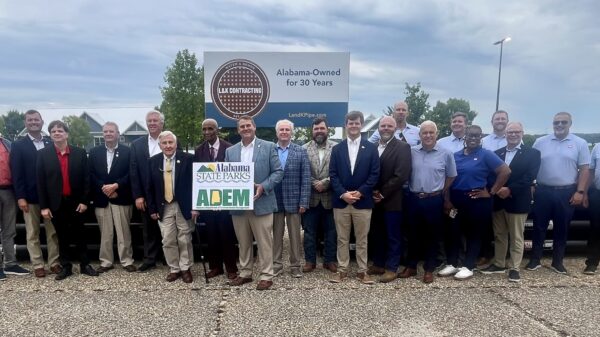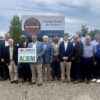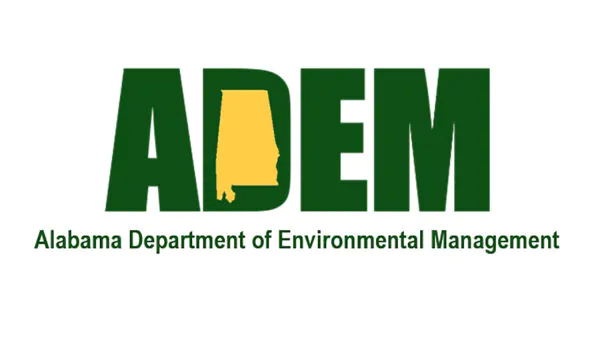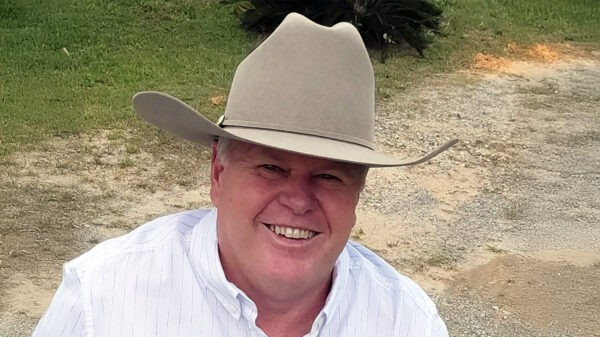The Alabama Department of Environmental Management is awarding more than $1.3 million to St. Clair County to help repave a portion of Annie Lee Road near Moody with rubber-modified asphalt made with scrap tires. The road, adjacent to the vegetative waste disposal site where an underground fire burned for months, was damaged last year by heavy trucks hauling dirt and other materials to extinguish the fire.
Through a grant agreement with the St. Clair County Commission, ADEM will reimburse the county for $1,355,342 of the cost of repaving 2.9 miles of the road. The County Commission has agreed to provide $523,905 for the roadwork.
“This project will have long-term benefits for the county and residents in the area,” ADEM Director Lance LeFleur said. “Not only will the road be repaired, it will be better than before, paved with materials that will last longer and provide a better, safer ride for motorists. Rubber-modified asphalt has proved to be an excellent substitute for traditional asphalt.”
The money for the demonstration project comes from the state’s Scrap Tire Marketing Program administered by ADEM. One dollar from the sale of each tire in the state goes to fund the program. Those funds are used to cover the costs of removing scrap tires from illegal dumps, roadsides and other places, as well as promote the recycling of discarded tires.
Rubber-modified asphalt is composed of traditional asphalt and old tires ground into crumbs. Studies have shown rubber-modified asphalt has many advantages over traditional asphalt. In addition to lasting up to 50 percent longer and being less prone to potholes and cracking, rubber-modified asphalt results in a quieter ride, reduces tire wear, improves fuel mileage because of lower rolling resistance, and is safer due to better traction and reduced misting on wet roads.
Over the years, the Alabama Department of Transportation has paved several sections of roads with rubber-modified asphalt to test its durability and the feasibility of expanding its use on public roadways.
Alabama State Parks has used rubber-modified asphalt in demonstration projects to repave roads and parking areas in three of its parks, including Lake Guntersville State Park, where ADEM in 2022 contributed $829,080 to the project from the Scrap Tire Marketing Program.
ADEM is using recycled scrap tire materials at its new Mobile field office, which is expected to open this spring. The parking area at the office is paved with rubber-modified asphalt, and a walking track there is made from recycled scrap tires.
Funds from the Scrap Tire Marketing Program are also used to reimburse local governments for the costs of picking up discarded tires along highways and clearing unauthorized tire dumpsites.
“More than 5 million vehicle tires are replaced and scrapped in Alabama each year. Millions more old tires are shipped to Alabama for disposal. All those tires have to go somewhere,” LeFleur said. “Burying them in a landfill is not an ideal solution because it takes up valuable landfill space.”
“The best way to dispose of scrap tires is to recycle them for other uses. That is what ADEM is doing. By demonstrating uses for recycled tires, we are helping create a market for them which can turn an environmental problem into something that provides value to the public.”



















































